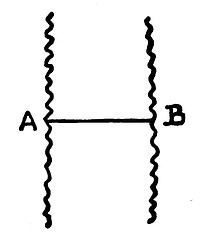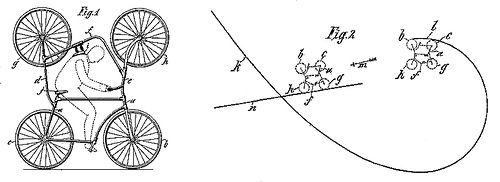exsibilation
n. the action of hissing off the stage
Author: Greg Ross
“A Bill of Particulars”
A certain gentleman of Worcester (Mass.) sent a very fine French clock to a well-known jeweler to be repaired, saying that he wished each item of repairing specified. The following is a copy of the bill as rendered:
To removing the alluvial deposit and oleaginous conglomerate from clock a la French, … $0.50
To replacing in appropriate juxtaposition the constituent components of said clock, … .50
To lubricating with oleaginous solution the apex of pinions of said clock, … .50
To adjusting horologically the isochronal mechanism of said clock, … .50
To equalizing the acoustic resultant of escape wheel percussion upon the verge pallets of said clock, … .50
To adjusting the distance between the centre of gravity of the pendulum and its point of suspension, so that the vibrations of the pendulum shall cause the index hand to indicate approximately the daily arrival of the sun at its meridian height, … .50
Total: $3.00
— Frank H. Stauffer, The Queer, the Quaint and the Quizzical, 1882
Measuring the River

A traveler reaches a river at the point A and wishes to know the width across to B. As he has no means of crossing the river, what is the easiest way of finding its width?
From Henry Dudeney.
Unquote
“It is impossible to love and to be wise.” — Francis Bacon
Flight Risk
On May 25, 2003, someone stole a Boeing 727 from an airport in Luanda, Angola. The plane, which had been sitting idle for 14 months, took off without communicating with the tower.
An American mechanic, Ben Charles Padilla, was on board at the time. He has not been seen since.
A Very Grand Thing

En route to a training camp in Quebec during World War I, Canadian army lieutenant Harry Colebourn bought a bear cub for $20 from a hunter in White River, Ontario.
He named her Winnipeg, after his hometown, and smuggled her to England, where “Winnie” became the mascot of his militia regiment.
Eventually he donated her to the London Zoo, where she became a great favorite of Christopher Robin Milne, the son of a local playwright.
You know the rest.
The Lottery Paradox
Imagine a lottery with 1,000 tickets.
It’s rational to believe that one ticket will win.
But it’s also rational to believe that the first ticket will not win—nor the second, nor the third, and so on.
And isn’t that equivalent to believing that no ticket will win?
A Geological Puzzle
Being at my seat near the village of Meudon, and overlooking a quarry-man, whom I had set to break some very large and hard stones, in the middle of one we found a huge live toad, though there was no visible aperture by which it could have got there. I could not help expressing my wonder how it had been generated, had grown, and lived; but the labourer told me, it was not the first time he had met with toads and the like creatures within huge blocks of stone, in which there could be found no visible opening or fissure.
— Ambrose Pare, chief surgeon to Henry III of France, quoted in The Monthly Magazine, 1798
You Go First

In 1905 Kael Lange patented this “double bicycle for looping the loop.”
The idea was that you’d roll through the loop, sail across the gap, and land upside down on the other side.
It has no brakes.
Spelling Peril
I take it you already know
Of tough and bough and cough and dough.
Others may stumble, but not you,
On hiccough, thorough, laugh, and through.
Well done! And now you wish, perhaps,
To learn of less familiar traps.
Beware of heard, a dreadful word,
That looks like beard and sounds like bird.
And dead—it’s said like bed, not bead,
For goodness’ sake, don’t call it deed!
Watch out for meat and great and threat,
(They rhyme with suite and straight and debt).
A moth is not a moth in mother,
Nor both in bother, broth in brother.
And here is not a match for there,
Nor dear and fear for bear and pear.
And then there’s dose and rose and lose—
Just look them up—and goose and choose.
And cork and work and card and ward,
And font and front and word and sword.
And do and go and thwart and cart—
Come, come, I’ve hardly made a start!
A dreadful language? Why, man alive!
I’d mastered it when I was five!
— Anonymous

